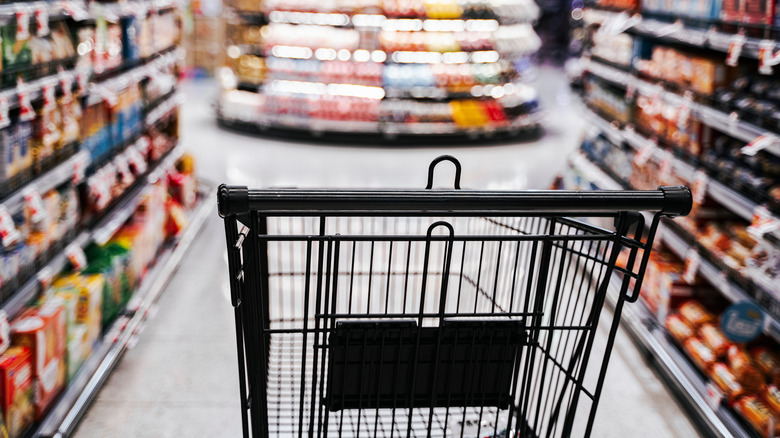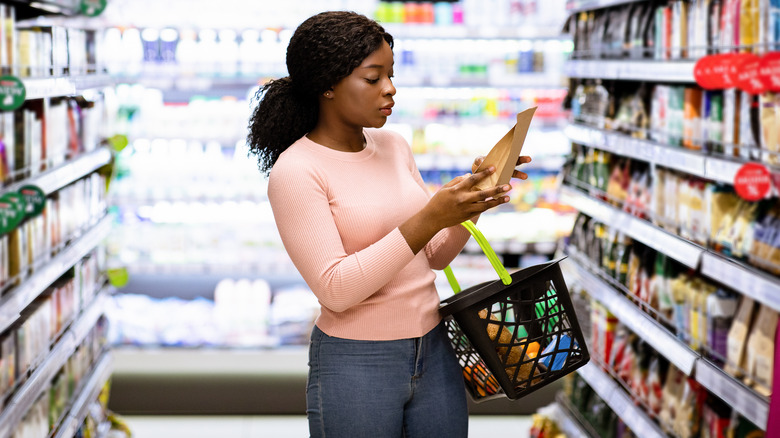New Study Could Mean Big Changes For Food Labels
Anyone who goes food shopping knows that the list you bring along is often subject to change. Sometimes there's a better deal on spinach compared to kale, on other occasions you may not be able to find any ripe avocados, or perhaps your go-to cereal isn't in stock and you have to look for a similar-tasting alternative. Whatever the case may be, consumers are always making choices whenever they go grocery shopping and much of it involves reading labels. Typically this comes down to checking the nutritional information, list of ingredients, or simply the price, but pretty soon it may also include the environmental impact.
BBC News reports that new research from the University of Oxford has now made a new labeling system possible. Prior to the study, brands couldn't provide very specific or entirely reliable sustainability information to consumers, but after a research team at Oxford closely evaluated 57,000 foods and drinks, there's finally enough data available to make a standardized eco label actually happen. Not only will this help shoppers make buying decisions, it can potentially hold food manufacturers accountable as well.
University of Oxford developed an environmental impact algorithm
It isn't uncommon to see words like "eco-friendly" or "sustainably sourced" printed on food labels, but there are still a good amount of details missing. That's where the data collected by the University of Oxford comes in. News Medical Life Sciences shares that the researchers selected the 57,000 most common food and drink ingredients in UK grocery stores, and with each one, conducted an analysis of four factors: greenhouse gas emissions, land use, water stress, and eutrophication potential. Using a unique algorithm, the researchers were then able to calculate a food product's "environmental impact score" based on the four factors.
According to Oxford professor Peter Scarborough, calculating this information for processed foods with long lists of ingredients had previously been too complicated, but thanks to the study and algorithm, thousands of those ingredients are now databased. With the university's foodDB platform collecting data daily from 12 different grocery stores, that number continues to grow. That means instead of just knowing that certain foods are made with eco-friendly ingredients, shoppers could eventually be able to see quantifiably how eco-friendly it truly is (or isn't) right on the label.

